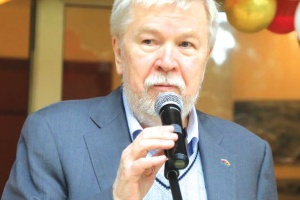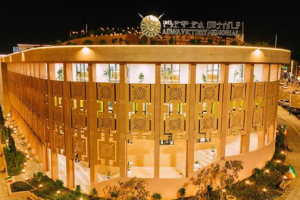
“Cuba in Africa” is a recently released new documentary film by Ethiopian filmmaker that has already won prestigious international awards as a historical piece of documentary art. According to the press release in connection to the release of the film, “The premiere in Africa of the documentary “Cuba in Africa” is made by the Ethiopian Negash Abdourahman and was presented at the Embassy of Cuba in the Ethiopian capital.
“The material is based on the contribution of Cuba to the independence struggles of African countries, as well as to the preservation of the sovereignty and territorial integrity of them. The history is recalled from interviews and anecdotes of the Cuban protagonists of these epic moments.
“During his introductory remarks Mr. Abdourahman acknowledged the decisive role of Cuba, not only from the military point of view but from the civilian one in sectors such as health and education. He insisted on the task to pass this legacy to the present and future generations of Africans.
“The Cuban Ambassador H.E. Mrs. Vilma Thomas highlighted the humble contribution of Cuba to make Africa a better continent and expressed appreciation to Mr. Abdourahman for this touching material.
The Cuban community in Ethiopia, members of the media and of the diplomatic corps, the family of the documentary producer as well as the staff of the embassy have attended the premiere of the film which documents with precision and truthfulness, the positive impacts Havana had on African nations including Ethiopia in their search for freedom and economic and social progress.
According to the same press release, “The material (of ‘Cuba in Africa’ film) is based on the contribution of Cuba to the independence struggles of African countries, as well as to the preservation of the sovereignty and territorial integrity of them. The history is recalled from interviews and anecdotes of the Cuban protagonists of these epic moments.”
Documentary filmmaking is a relatively new and ignored film genre in Ethiopia as the industry is often obsessed with commercial or fictional films based on local materials. Wikipedia defines a documentary film as, “a non-fictional motion-picture intended to “document reality, primarily for the purposes of instruction, education, or maintaining a historical record”. Bill Nichols has characterized the documentary in terms of “a filmmaking practice, a cinematic tradition, and mode of audience reception [that remains] a practice without clear boundaries.
Early documentary films, originally called “actuality films”, lasted one minute or less. Over time, documentaries have evolved to become longer in length, and to include more categories; some examples being: educational, observational, and docufiction. Documentaries are very informative and are often used within schools, as a resource to teach various principles. Documentary filmmakers have a responsibility to be truthful to their vision of the world without intentionally misrepresenting a topic.”
A few documentary films have been produced by Ethiopian filmmakers like Solomon Bekele and Haile Gerima back in the 1980s. “Harvest 3000” is one of the documentaries made by Haile and financially supported by the cultural institution of the time. According to the same sources, “The cinema of Ethiopia was introduced in 1898, three years after the first world film was projected on 25 December 1895. However, the growth rate was critically declined as a result of ongoing sociopolitical instability. Over decades, the Ethiopian film industry was associated with cultural, religious and national background under pressure of its leaders, advanced historical and documentary films.”
Relations between Cuba and Africa took a U-turn after the Cuban Revolution of 1959 that restored the sovereignty and independence of the country from centuries of Spanish and American political oppression and economic exploitation. Cuba is a small Caribbean nation some 90 miles away from the US. Under the Batista dictatorship, the Cuban people lived in humiliation as their resources were controlled by big landowners and industrialists that controlled the sugar industry while its politics was dominated by exploitative, rapacious elites that robbed the country of its resources, dignity and humanity.
The Cuban Revolution not only restored the dignity of the Cuban people. It also made the people the true owners of their country irrespective of race, ethnicity or language. Former slaves from Africa found dignity side by side with people of Spanish and Portuguese descents and those coming from various parts of the world. For more than 60 years, Cuba served as a beacon of hope for oppressed people everywhere in the world. For this and other reasons Cuba became the enemy number one of various US administrations that tried to kill the leaders of the Revolution and reverse the gins of the Revolution. Most of all, Cuba was and still remains a thorn on the side of the US administrations that tried to dominate and exploit the smaller nations of the world that stood for their dignity and independence.
The Cold War was a particularly difficult period in Cuban history as both the Soviet Union and the US fought for hegemonic ambitions everywhere their interests clashed. Cuba had no choice but to ally itself with the Soviet simply because it is a small country that could not stand alone in the face of the northern Titan that had tried to destroy it simply because it refused to abide by the US diktat and interference in its internal affairs.
US officials alleged that they are against Cuba because of its communist system. This is an allegation that ran against a country’s right to choose its political system as it suits its preferences. The Americans always forget that the Cuban system was not something imposed from outside as they often allege but a system that grew out of the Cuban people’s desire for sovereignty and independence from Washington.
For that matter the US quite often make friends with fascist and dictatorial military regimes in Latin America as well as in Africa as long as the latter served its strategic interests. Washington supported movements and groups that openly worked against the independence of African countries like Jonas Savimbi of Angola whose movement was a puppet of Western imperialism. In the Congo, where former Cuban revolutionaries like he Guevara fought for its independence from Belgian imperialism, the US worked in tandem with anti-liberation forces, provoked a proxy rebellion in Katanga and masterminded the assassination of Congolese patriot Patrice Lumumba. In South Africa, they supported the Apartheid system tooth and nail and portrayed the African patriots as “communists” or “agents of Moscow” instead of trying to address the true causes of the rebellions.
Most of the US was mad about Cuba exemplary role in international affairs aimed at assisting friendly nations gain their independence and freedom or defend their revolution against imperialist incursions. The Cubans were thus actively involved in Africa and this infuriated Washington that wanted political domination over Africa in the guise of fighting against communist incursions.
Similarly, Washington saw in the Ethiopian revolution of 1974 a threat to its hegemonic ambitions and worked to destroy it by any means, including a proxy war that pitted former Somali dictator Siad Barre against Ethiopia which was wrongly perceived as a “Soviet puppet”. In a way, the US manufactured its own enemies in Africa. By denying Ethiopia the military assistance needed to defend itself from foreign aggression, Washington forced the Mengistu regime which was dictatorial indeed to turn to Moscow for help and adopt “communism” as its ideology.
Had Washington tried to help Ethiopia which was a clear victim of aggression, against Somalia or had it tried to bring the two sides to the negotiating table, so much tragedy could be avoided. Yet, the US preferred the two sides to fight a bloody war in expectation of both emerging weaker from the conflict. However, Ethiopia survived the war and kept its independence while Somalia is still embroiled in domestic political crisis that was the making of Washington and it Western allies.
No doubt that Cuba played a critical war in Ethiopia’s war against Siad Barre but this was not done with the view to turning Ethiopia into Cuban puppet or a Soviet satellite state. Ethiopia emerged from that war the winning side with its sovereignty and territorial integrity intact, contrary to US allegations. This is also one of the central themes of Negash’s documentary that has earned appreciation and won awards of merit.
The new generation of Ethiopian filmmakers may learn a lesson or two from this new documentary as far as documenting the history of the country, both its positive and negative features. Documentary films my not money spinners and difficult to produce without the support of the government or foreign sources. Yet, Ethiopia’s long history is full of dramatic episodes that can capture the spirit of independence and freedom that are central to Ethiopians’ collective experience and collective psyche. Negash Abdurahman’s documentary comes at a critical moment when Ethiopians are dealing with issues of national integrity and independence that have always meant a great deal to them. Ethiopian filmmakers have plenty of materials for documentaries and this is the time to think about turning some of them into classics of the silver screen.
BY MULUGETA GUDETA
The Ethiopian Herald 12 November 2021





